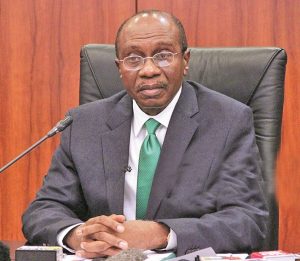Nigeria’s Central Bank has cut the country’s benchmark interest rate to 27 per cent, marking the first reduction in five years and the first policy shift in 2025 after three consecutive pauses. The decision, announced after the 302nd Monetary Policy Committee (MPC) meeting in Abuja, signals a cautious move toward stimulating economic recovery as inflation shows signs of easing.
Central Bank Governor Olayemi Cardoso said all 12 MPC members voted for a 50-basis-point cut from 27.5 per cent, a decision he described as driven by five months of sustained disinflation, a positive inflation outlook for the rest of the year, and the need to support growth. Nigeria’s inflation rate slowed to 20.12 per cent in August from 21.88 per cent in July, while food inflation declined to 21.87 per cent from 22.74 per cent. Core inflation also eased to 20.33 per cent from 21.33 per cent, and month-on-month inflation dropped sharply from 1.99 per cent in July to 0.74 per cent in August.
“This reduction is the first under my leadership and the first in five years,” Cardoso noted, recalling that the last cut was in September 2020 when the policy rate fell from 12.5 per cent to 11.5 per cent. The committee also adjusted the Standing Facilities corridor to +250/-250 basis points, raised the Cash Reserve Requirement (CRR) for commercial banks to 45 per cent, maintained merchant banks’ CRR at 16 per cent, and introduced a 75 per cent CRR on non-TSA public sector deposits. The Liquidity Ratio remains unchanged at 30 per cent.
The decision aligns Nigeria with a broader continental trend toward monetary easing. Ghana slashed its policy rate by 350 basis points to 21.5 per cent last week, while Kenya lowered its benchmark to 9.5 per cent in August. Despite the cut, Nigeria still maintains one of the highest interest rates in Africa.
Positive macroeconomic data also strengthened the MPC’s confidence. Nigeria’s GDP grew by 4.23 per cent in the second quarter of 2025, up from 3.13 per cent in the first quarter, driven largely by a 20.46 per cent expansion in the oil sector compared with 1.87 per cent previously. The committee credited improved security in oil-producing regions for the rebound, saying sustained production growth would boost external reserves and stabilize the naira. Foreign reserves climbed to $43.05 billion as of September 11, up from $40.51 billion at the end of July, providing an import cover of 8.28 months. The current account surplus also rose to $5.28 billion in Q2 from $2.85 billion in Q1.
Cardoso disclosed that 14 banks have already met new recapitalisation requirements and that the sector remains strong, with financial indicators within regulatory benchmarks. Looking ahead, the MPC projected continued disinflation supported by exchange rate stability, falling petrol prices, and the ongoing harvest season. The next policy meeting is scheduled for November 24–25, 2025.
However, members of the Organised Private Sector (OPS) say the rate cut, though welcome, is far from sufficient to ease credit pressures on businesses. Manufacturers Association of Nigeria chief Segun Ajayi-Kadir said manufacturers need single-digit interest rates around five per cent for borrowing to truly support production. “No bank will lend below the MPR, so credit costs remain unaffordable,” he said, adding that manufacturers are still waiting for deeper cuts.
The Nigeria Employers’ Consultative Association warned that other restrictive policies, such as the high CRR, could blunt the impact of the rate cut. “If credit costs are lowered, businesses can expand, invest, and create jobs. But the high CRR and liquidity restrictions risk limiting those gains,” said Director-General Adewale Oyerinde. He also noted that food inflation remains high at 21.87 per cent, continuing to erode household incomes, and urged the government to pair monetary policy with structural reforms.
Small business owners echoed the same concerns. The Association of Small Business Owners of Nigeria described the rate cut as a “good start” but “insignificant” compared to the funding challenges SMEs face. Its president, Femi Egbesola, called for special single-digit credit windows and alternative funding sources beyond traditional banks.
The Centre for the Promotion of Private Enterprise also welcomed the decision but stressed the need for complementary fiscal action. Director Muda Yusuf said a lower MPR, combined with a reduced CRR, could help banks expand credit and lower lending rates, stimulating output growth and job creation. However, he cautioned that monetary easing alone cannot achieve sustained stability without improvements in infrastructure, regulatory consistency, and fiscal discipline. Yusuf also urged the government to address insecurity, which continues to deter investment and weaken rural productivity.
The Nigeria Labour Congress described the policy shift as a positive step but warned that borrowing costs remain too high for businesses. Assistant Secretary-General Onyekachi Christopher said easier access to loans would enable manufacturers to expand, hire more workers, and contribute more to the economy.
Economists say the rate cut is a significant signal of change. Professor Sheriffdeen Tella of Crescent University said lower rates reduce borrowing costs and production expenses, though borrowing remains unattractive at current levels because business profits rarely exceed 20–30 per cent annually. Former Zenith Bank Chief Economist Marcel Okeke called the decision “the beginning of a loosening” in the CBN’s tight monetary stance, noting that it could prompt commercial banks to ease lending rates by one to two percentage points. He suggested further cuts could follow if inflation continues its downward trend, potentially falling to around 17–18 per cent.
Okeke added that while the effect of the policy shift won’t be immediate, lower interest rates will eventually make credit more accessible and stimulate economic activity. He cautioned, however, that further progress depends on maintaining exchange rate stability and keeping inflation under control.
Across the private sector, the consensus is that the CBN’s decision marks a pivotal shift from a focus on stabilisation to one on growth acceleration. Yet businesses argue that to truly unlock Nigeria’s productive potential, credit costs must fall much further , ideally into single digits. If paired with structural and fiscal reforms, analysts say the new policy direction could boost private sector performance, expand revenues, and sustainably moderate inflation over the medium tolong term.










